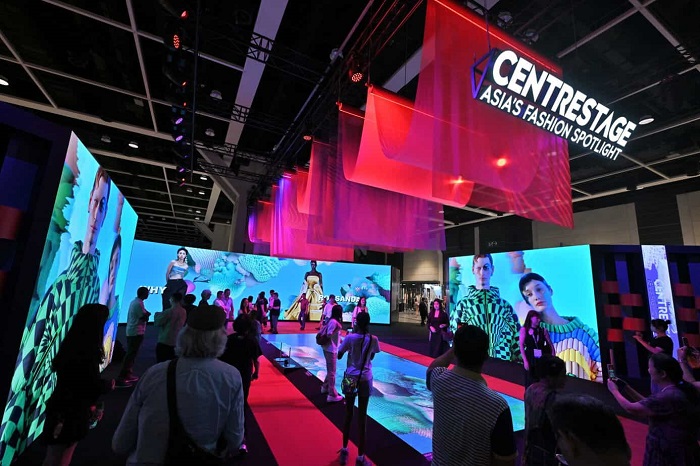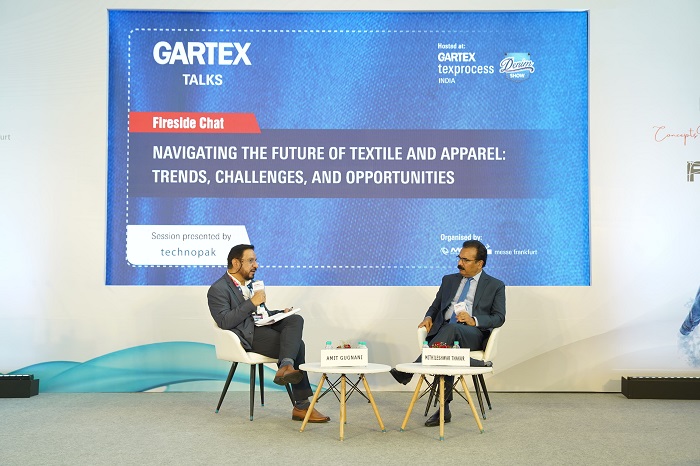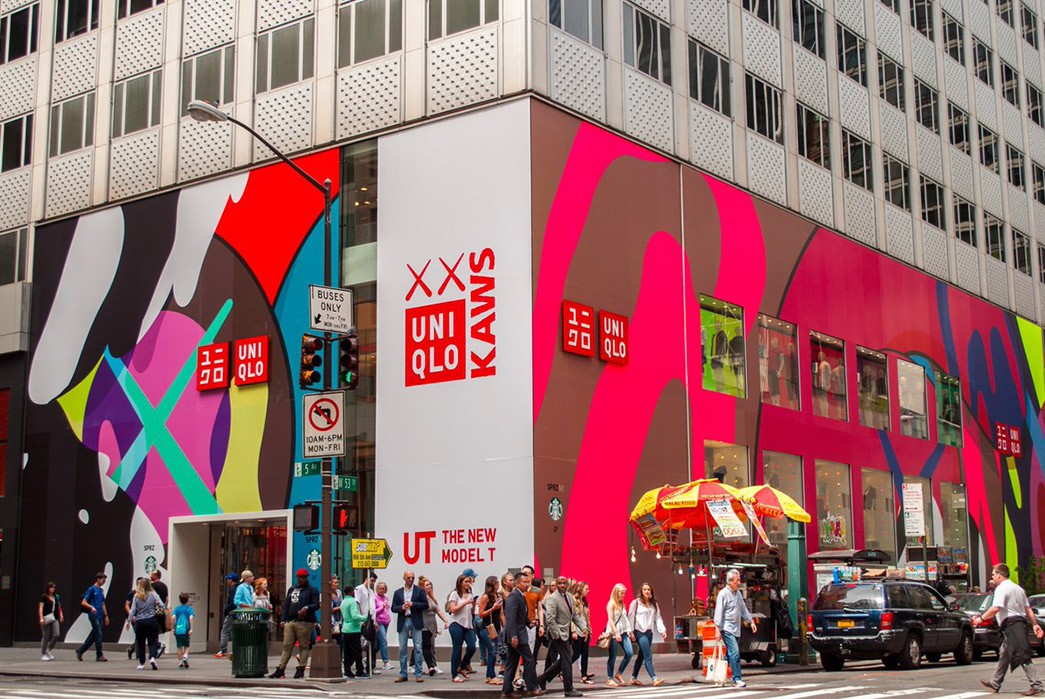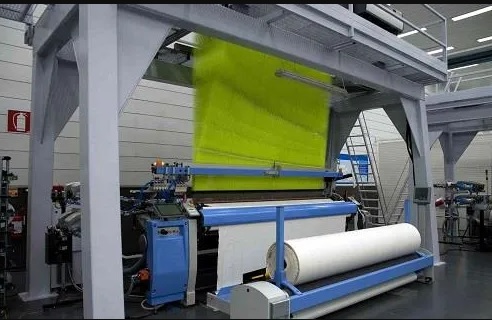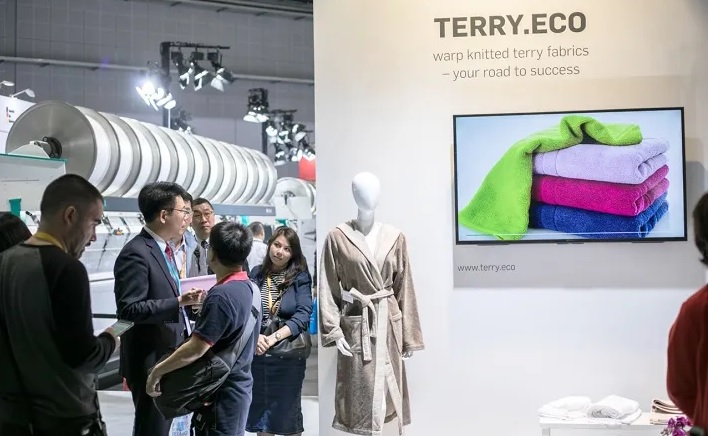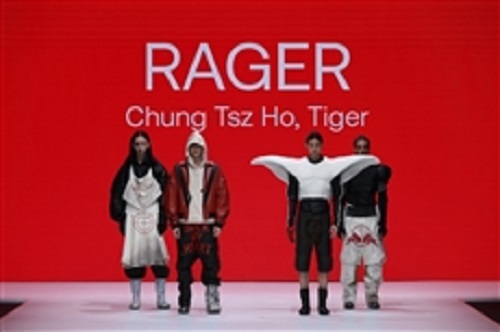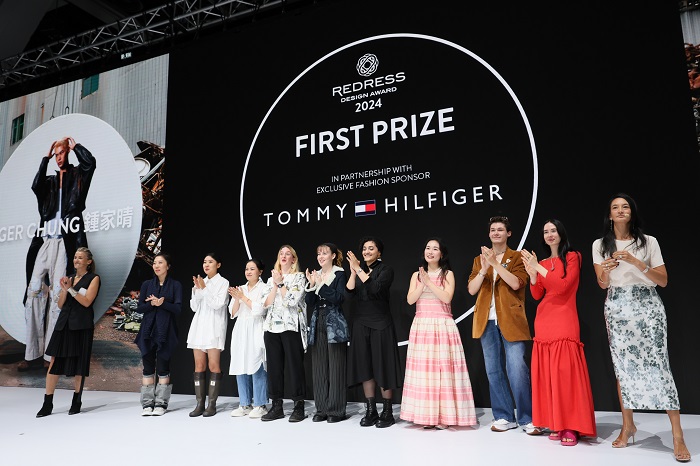FW
Aberchrombie & Fitch has appointed Andrew Clarke, Global President, Mars Snacking, as the company’s new board member.
Having started his career at Marks & Spencer, Clarke has over 30 years of experience in consumer-focused industries, with the last 24 years at Mars in roles of increasing responsibility. He started his career at Mars as head-UK sales before moving onto to various general management and regional roles across Europe and Latin America.
He later assumed a global role as chief customer and marketing officer before moving into his current position
In addition, he spent more than nine years in the Mars leadership team.
A US-based youth apparel retailer, Abercrombie & Fitch Co operates a family of brands, including Abercrombie & Fitch and Hollister.
According to the company’s most recent trading update in May, it recorded a sixth consecutive rise in revenue to $1 billion, with profit improving on fewer promotions and clearance deals.
Same-store sales at the Abercrombie’s bespoke brand increased by 29 per cent during the quarter while the comparable store sales of Hollister expanded by 13 per cent.
Worth approximately $1.552 billion in 2023, the global wool worsted yarn market is projected to grow at a CAGR of 5.3 per cent from 2024-30 to reach $2.19 billion by 2030.
A market research report titled, ‘Global Wool Worsted Yarn Market Report 2023- 2029’ by QY Research, shows, the market is on a growth trajectory, with demand driven by its application in high-quality and durable textiles.
Some of the key players in the global wool worsted yarn market include Suedwolle Group, Zhejiang Xinao Textiles, Indorama Ventures, ZegnaBaruffa Lane Borgosesia, Yünsa, Jiangsu Lugang Culture, Zhejiang Zhengsong Textiles, Novita, E.Miroglio, and BoynerSanayi. In 2022, these top five companies accounted for approximately 81 per cent of the market's revenue.
Growth of the global wool worsted yarn Market is currently being driven by the consumers' growing preference for high-quality, durable textiles. Known for its luxurious feel, warmth, and longevity, wool worsted yarn appeals to consumers seeking premium products.
The versatility of wool worsted yarn makes it a staple in the fashion and textile industry. Designers and manufacturers continue to incorporate it into various collections, supporting its ongoing demand.
The relatively high production costs of wool worsted yarn pose a challenge in price-sensitive markets. Consumers in these regions may opt for cheaper alternative fibers, impacting the adoption rate of wool worsted yarn.
Blended yarns that combine wool worsted yarn with other fibers present a significant opportunity for the market. These blends can enhance yarn properties, offer unique textures, improve affordability, and cater to a broader market.
The rise of e-commerce platforms offers a chance to expand the global reach of wool worsted yarn. Online retail channels provide easier access for manufacturers and retailers, allowing them to tap into markets with limited traditional distribution.
As consumer demand for sustainable products grows, emphasising the eco-friendly, biodegradable nature of wool worsted yarn will continue to attract environmentally conscious buyers.
Despite the recent curfew and violent outbursts across the country, the impact of the civil unrest on Bangladesh’s apparel industry appears to be minimal, says MostafizUddin, CEO, Denim Expert and Organiser, Bangladesh Denim Expo. According to Uddin, following a month-long protest, all apparel factories in the countryreopened as of Aug 06, 2024.
With the nationwide curfew lifted in the first week of August, and most of the nation’s activities resuming normal operations, all apparel factories across the country, including those in Export Processing Zones are operating at full capacity, Uddin states.
With a population of approximately 170 million, Bangladesh is heavily dependent on its garment industry, which provides employment for about eight to ten million people, especially women. In recent years, the industry has become highly dynamic and agile, serving as a key unifier for the country by bringing vital export earnings, prosperity, and empowerment to millions of its citizens.
The industry has also improved its purchasing practices over the past decade. Additionally, it has addressed issues like best practices and corporate responsibility within supply chains. This has resulted in an improved collaboration between suppliers and brands, he adds.
One of the world's major garment manufacturing hubs, Bangladesh has faced significant challenges in recent weeks. In mid-July 2024, widespread unrest and violence erupted, resulting in the deaths of 300 people protesting against Prime Minister Sheikh Hasina, who has led the country for the past 15 years. Despite these difficult circumstances, the apparel manufacturing industry in Bangladesh continues to remain fully operational, Uddin adds.
The Lenzing Group, a leader in regenerated cellulose fibers, has introduced a refreshed branding for its flagship textile brand, Tencel, under the theme "Nature. Future. Us." This new identity emphasizes innovation, collaboration, and sustainability, aiming to drive change in the textile industry for a better future.
Eva McGeorge, Senior Director of Global Marketing and Branding at Lenzing AG, highlighted Tencel's commitment to eco-conscious and resource-efficient fiber solutions since the introduction of TencelLyocell in 1992. The brand's evolution is rooted in its respect for the planet, with a focus on circular business practices and sustainable innovation.
Tencelfibers, sourced from sustainably managed forests, are biodegradable and produced through resource-efficient methods. Lenzing has been exploring the use of waste materials, such as orange peels and cotton waste, to enhance circularity in its fiber production. The brand has also pioneered advancements like waterless dyeing and plastic-free alternatives for stretch fabrics.
Transparency remains a key focus, with Tencel offering detailed fiber claims and traceability through Lenzing’s fiber identification technology. This allows consumers to make informed, sustainable choices.
The new Tencel branding will be showcased at the Intertextile Shanghai Apparel Fabrics Trade Fair from August 27-29, 2024.
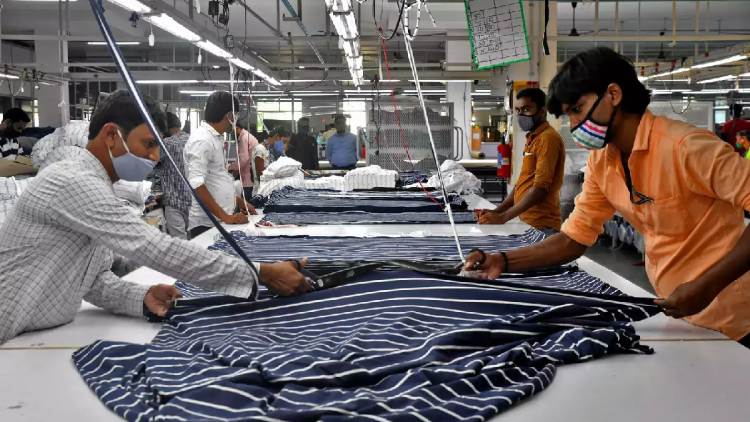
Indias textile sector, a cornerstone of the national economy, has experienced mixed fortunes in terms of its financial performances in the first quarter of the fiscal year 2024-25. As companies navigate a complex global landscape, the recently announced Q1 results reveal both bright spots and areas of concern.
Mixed performance for key players
While some companies have showcased resilience and growth, others have grappled with challenges. The sector witnessed a mixed bag of results, with some companies registering healthy growth in revenue and profits while others faced a decline. Companies such as Trent Ltd showcased impressive revenue growth, driven by strong domestic demand and expansion of retail footprint. On the other hand, companies like Sutlej Textiles & Industries witnessed stable revenues, reflecting subdued global demand and pressure on margins. Similarly, Welspun India, a leading player in home textiles, reported a robust 29 per cent YoY increase in net profit, attributed to strong demand and operational efficiency. "We have been able to navigate the challenging environment by focusing on our core strengths and leveraging our global presence," said B K Goenka, Chairman, Welspun Group. "We remain optimistic about the future and are confident of sustaining our growth momentum." KPR Mill the vertically integrated textile company saw a 15 per cent rise in net profit, driven by higher sales and cost control measures. And the Trident Group’s focus on high-margin products like bed linen and bath linen resulted in a 12 per cent increase in net profit.
At the same time some companies like Raymond saw it net profit decline by 10 per cent due to weak demand in the domestic market and higher input costs. Arvind Limited’s net profit fell by 8 per cent due to sluggish sales in the branded apparel segment. Vardhman Textiles’ saw a 5 per cent drop in net profit due to higher cotton prices and subdued demand. Companies in the fiber segment, particularly those involved in cotton and man-made fibers, faced headwinds due to fluctuating raw material prices and a subdued global demand.
The yarn segment demonstrated resilience, with companies reporting stable or improved performance due to steady domestic demand and a gradual recovery in export markets. The fabric segment had mixed trends, with some companies facing challenges due to increased competition and a shift in consumer preferences towards value-added products.
While there are signs of recovery, domestic demand remains subdued due to inflationary pressures and concerns about the overall economic outlook. Exports on the other hand have been a key driver of growth, supported by strong demand from major markets like the US and Europe. However, global economic uncertainty and geopolitical tensions pose risks. The government's focus on promoting the textile industry through initiatives like the PLI scheme is expected to provide a boost in the long term.
Outlook for the next quarter and FY24-25
The outlook for the next quarter and the full fiscal year 2024-25 is cautiously optimistic. With regards domestic demand, gradual improvement is expected as inflationary pressures ease and consumer confidence improves. Exports are likely to remain strong, although some moderation is possible due to global economic headwinds. Volatility in raw material prices, particularly cotton, is expected to continue, impacting profitability. Meanwhile the government's continued focus on promoting the textile industry through initiatives like the PLI scheme is expected to provide a boost in the medium to long term. Overall, the Indian textile industry is expected to witness moderate growth in FY24-25. Companies that can navigate the challenges and capitalize on the opportunities are likely to outperform the market.
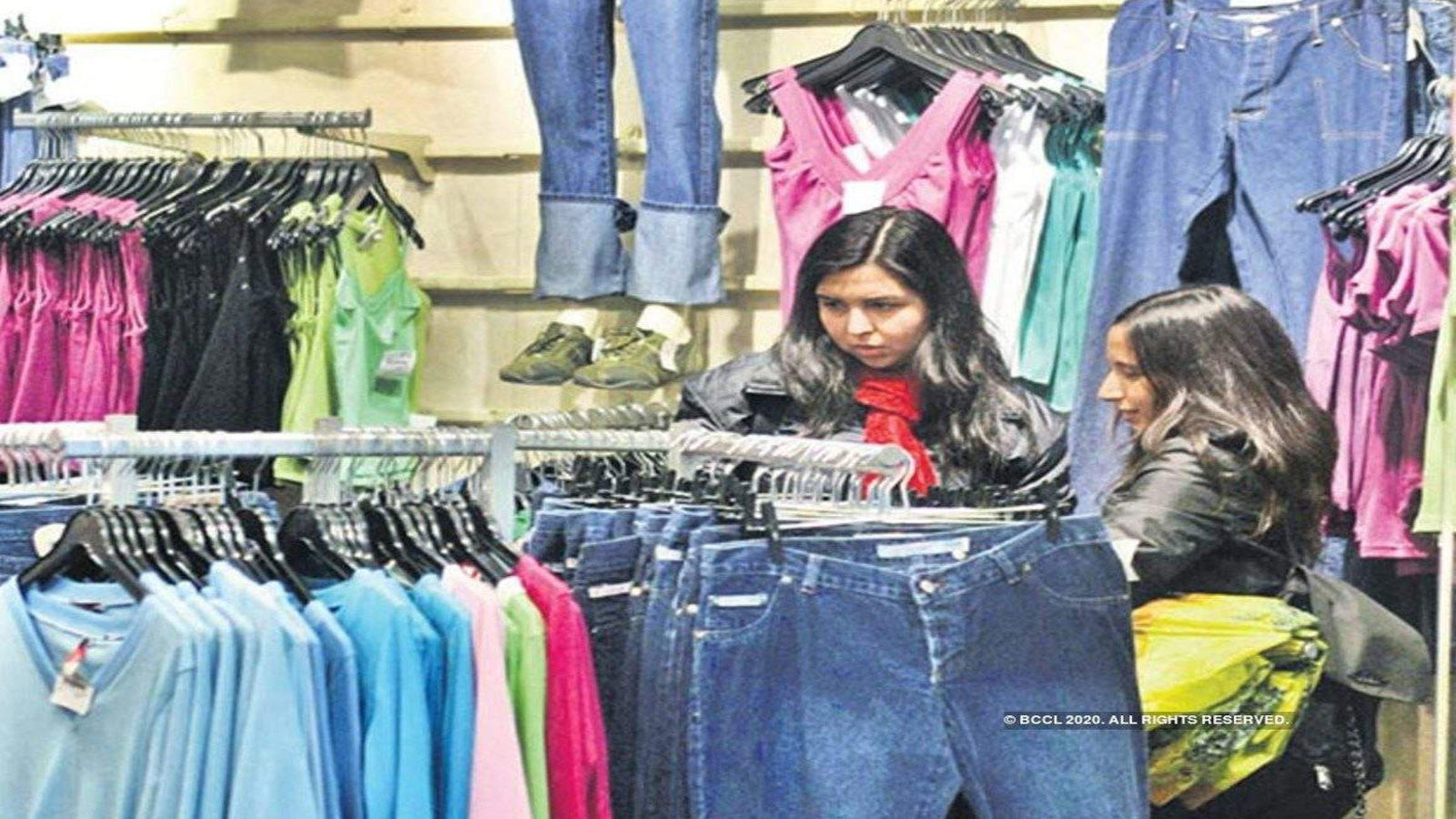
The global apparel retail sector continues to face headwinds, with mixed signals emerging from key markets. Despite a slight easing of inflation, economic uncertainties and declining consumer confidence have cast a shadow over the industry. Wazir Advisors monthly 'Apparel trade scenario in key global markets and India' for August 2024 reveals while some regions and segments have shown signs of resilience, others are grappling with challenges stemming from macroeconomic factors and evolving consumer preferences.
US retail scene In the United States, the retail landscape was characterized by a variance between apparel and home furnishing sales. While home furnishing store sales clocked in a robust 13 per cent increase in July 2024 compared to the previous year, apparel store sales were estimated to be 2 per cent lower. The study reveals shoppers are shifting their spending towards home improvement projects and furnishing.
Online clothing and accessory sales also faced headwinds, falling 1 per cent in the second quarter of 2024 compared to the same period in 2023. This trend reflects a shift in consumer behavior as shoppers increasingly opt for physical stores or explore alternative channels. Moreover are factors such as increased competition, changing consumer preferences, and the easing of pandemic-related restrictions that drove online shopping during the lockdown periods are also at play.
Inventory challenges
A common thread among several major retailers such as Walmart, Target, Kohl’s, VF Corp has been lower inventory levels compared to the previous year. This suggests that retailers are becoming more cautious in their stock management, potentially due to economic uncertainties or concerns about consumer demand.
Also, the US economy experienced mixed indicators in July 2024. While inflation reached its lowest level since April 2021, unemployment rose to its highest point since December 2021. The decline in the consumer confidence index further highlighted the economic challenges faced by consumers.
UK apparel retail
Across the Atlantic, the UK apparel retail market continued to face challenges. Store sales in July 2024 declined by 3 per cent compared to the previous year, reaching £3.6 billion. Online sales of clothing also experienced a decline of 5 per cent in the second quarter compared to the previous year. This downturn reflects the ongoing economic uncertainties and inflationary pressures impacting consumer behavior.
Outlook
The report highlights the apparel retail industry is likely to continue facing headwinds in the coming months. Economic uncertainties, changing consumer preferences, and ongoing supply chain disruptions pose significant challenges. Retailers will need to adapt their strategies to navigate these challenges and capitalize on emerging opportunities. These strategies may include:
• Inventory optimization: Fine-tuning inventory levels to match demand fluctuations.
• Digital transformation: Enhancing online presence and leveraging digital channels.
• Customer-centric approach: Prioritizing customer experience and personalization.
• Sustainability focus: Embracing sustainable practices to meet evolving consumer preferences.
Kraig Biocraft Laboratories, Inc. has significantly increased spider silk production through the introduction of advanced silk cocoon reeling protocols. These enhancements, led by sericulture expert Nirmal Kumar, have nearly doubled the reeling efficiency of the company's proprietary spider silk cocoons.
The improvements focus on modifying the mechanical processing and handling of silk cocoons, resulting in higher yields per cocoon. This achievement aligns with Kraig Labs' goal of boosting production efficiency and cocoon yield, one of the company's top three objectives.
CEO Kim Thompson praised the production team for achieving these results ahead of schedule. He highlighted the focus on further increasing cocoon size and overall production volumes in upcoming cycles, with expectations of continued gains in processing yield.
The third production cycle of Kraig Labs' BAM-1 hybrid cocoons has been successfully completed under the new protocols. Kumar and the team have also selected top-performing BAM-1 cocoons for expansion in the fall, with plans to use these for selective breeding to enhance future generations.
COO Jon Rice emphasized Kumar's pivotal role in accelerating the company's operational advancements, noting the significant improvements in finished silk yield due to his expertise. The company anticipates continued production growth under Kumar's guidance.
In collaboration with a coalition of its member companies, American Circular Textiles (ACT)has launched a nationwide petition to eliminate double taxation on second-hand goods, repairs, and alterations. This initiative is a significant move to raise awareness about the unfair financial burden placed on consumers who choose sustainable and affordable shopping alternatives.
Currently, many states across the US impose sales tax on second-hand items, including clothing, shoes, and accessories. This practice results in double taxation, as consumers are taxed both at the initial point of sale and again when these items are resold. Critics argue that this policy discourages eco-friendly shopping habits and stifles the growth of the second-hand market, repair options, and the broader circular economy, according to a press release from ACT.
An estimated 85 per cent of used clothing ends up in landfills or incinerators, much of which could be resold or repurposed. By taxing second-hand items, states inadvertently contribute to this waste problem, hindering efforts to promote sustainable consumption.
Several of ACT's prominent members and affiliates are participating in this campaign, including America's Best Cleaners, Arrive Recommerce Inc, Fashionphile, Project Repat, Sortile, ThredUp, Vestiaire Collective, and unspun.
Consumers’ monthly expenditure on apparel and footwear has surged by a staggering 72 per cent since January 2020, leading more shoppers to turn to second-hand options. Ending double taxation will stimulate economic growth and support the trend of purchasing well-made clothing that can be reused and repaired, rather than discarded into growing piles of apparel waste,says Rachel Kibbe, CEO and Founder, ACT.
“Eliminating double taxation on second-hand goods not only fuels the circular economy but also empowers consumers to make sustainable choices. It's a clear win for the future of fashion and for taxpayers who want to do the right thing," adds AlonRotem, Chief Legal Officer, ThredUp.
Pakistan’s textile and apparel (T&A) industry is facing significant challenges in competing with regional rivals due to stringent taxation measures introduced this fiscal year, reports WealthPK.
As per data from the Pakistan Bureau of Statistics (PBS), T&A exports by Pakistan declined 3.09 per cent in July 2024. Once the cornerstone of the country’s export economy, the sector has been severely impacted by new tax policies and rising energy costs.
Despite an installed capacity valued at $25 billion, T&A exports from Pakistan have stagnated over the past two years. Exporters attribute this stagnation to structural issues within the industry. In absolute terms, exports fell to $1.27 billion in July, down from $1.31 billion in the same month last year, marking a month-on-month decline of 10.13 per cent.
This drop continues a trend of negative growth, including a 0.93 per cent decrease in June, despite a significant rebound in May when the sector experienced double-digit growth. However, the textile industry continues to struggle, largely due to unfavorable government policies.
A closer look at PBS data reveals mixed results across various textile sub-sectors. For instance, RMG exports rose by 7.57 per cent in value and 8.47 per cent in quantity, while knitwear exports declined by 1.88 per cent in value and 6.37 per cent in quantity.
Bedwear exports saw a 1.20 per cent decline in value but a 4.07 per cent increase in volume. Towel exports dropped by 3.67 per cent in value and 2 per cent in volume, and cotton cloth exports fell by 0.56 per cent in value and 4.72 per cent in volume.
Yarn exports suffered a sharp decline of 42.54 per cent in July compared to the same period last year. Conversely, exports of tents, canvas, and tarpaulins increased by 14.22 per cent, and other textile items saw a significant 53.20 per cent rise, indicating a shift in export composition.
On the other hand, imports of synthetic fibersfell by 33.23 per cent, while synthetic silk yarn imports decreased by 17.68 per cent. Imports of second-hand clothing rose by 13.47 per cent.
Gimatex Industries Pvt. Ltd., a prominent Indian textile company, has deepened its collaboration with Trutzschler, a German textile machinery manufacturer, a relationship that started in 2006.
Gimatex, known for its high standards in quality and sustainability, operates fully integrated facilities in Hinganghat and a state-of-the-art fabric processing unit in Dholka. This long-term partnership has led to numerous successful projects, with the latest being a focus on turning textile waste into valuable ring yarn using Trutzschler’s Integrated Draw Frame (IDF) technology.
The IDF technology is central to Gimatex's operations, enabling the production of high-quality yarn from diverse raw materials, including 100 per cent cotton, polyester, recycled fibers, and blends. Traditionally used for rotor and vortex spinning, Gimatex has pioneered a new process to produce traditional and recycled ring yarn using IDF, particularly for coarser varieties like Ne 10s and Ne 16s, often blended with spandex.
VineetMohota, Director at Gimatex, highlighted the benefits of this collaboration, emphasizing how IDF technology helps reduce costs and boost productivity without compromising quality. The direct spinning process eliminates the need for multiple draw frame passages, leading to energy savings and increased output.
Gimatex’s ongoing innovation, supported by Trutzschler's expert teams, is a testament to their strong partnership. As the Indian market evolves, both companies are committed to adapting and continuing their shared success.


